Introduction: The Future of Love is Algorithmic
The unexamined life is not worth living. - Socrates. When Socrates mused about the depths of self-examination, he certainly wasn't pondering over swipe rights or perfectly crafted bios. Yet in today's digital age, our love lives are increasingly becoming the subject of intense scrutiny—by algorithms. Have our hearts surrendered to code, trading mystery and spontaneity for precision and predictability? Are we closer to our soulmate, or just chasing a digital echo of what love could be? With AI reshaping dating, these questions become pivotal in understanding the terrain of our romantic futures.
The Rise of Digital Matchmaking
Over the past few decades, dating has transformed from a serendipitous connection to a calculated affair. The journey began in the late 1990s when websites such as Match.com and OkCupid used early algorithms to connect hopeful singles. As technology evolved, so did our quest for love, birthing apps that promise more than just the chance of a match. AI now promises to dig deeper into our psyches, understanding us more profoundly than our previous late-night swipe sessions could.
Evolution from Traditional Dating to Apps
Long gone are the days of meeting partners through mutual friends or at social gatherings—the evolution to app-based dating was driven by convenience and accessibility. With platforms like Tinder, location-centric matches became the norm, adding a gamified twist to romance. These apps tapped into our desire for immediacy, delivering connections at the touch of a screen, though sometimes criticized for reducing complex emotions to binary choices.
Challenges of Algorithmic Matchmaking
Yet, algorithmic matchmaking isn't without its hiccups. It creates what's known as "echo chambers," where you're more likely to meet people just like you. This could stifle diversity of thought and experience. Furthermore, platforms are often guilty of reinforcing biases, as explored by researchers at the APA. Also highlighted by Kate Harris, author of "Digital Love Unplugged," is the tendency for online daters to focus on surface-level attributes instead of deep compatibility, which can lead to superficial connections.
To really capture love in its true essence, one must ask: Is the perfect algorithm a myth? Or is the quest for an ideal match a reflection of our deeper understanding of love in the digital age?
The Role of Artificial Intelligence in Matching Compatibility
Imagine a world where your most compatible partner is just a few swipes away, thanks to artificial intelligence. AI is revolutionizing the dating scene by playing matchmaker with an algorithmic flourish, shaking the very foundations of how we form relationships. These clever algorithms dive headfirst into a sea of data, analyzing every quirk and preference you have to predict romantic compatibility. It's less of a blind date and more of a data-driven date—though keep those eyes open for virtual reality nights!
Deep Learning and Relationship Predictions
Much like how Netflix gets eerily good at suggesting your next binge-watch, AI in dating apps use deep learning to enhance matchmaking. By analyzing your past swipes, messages, and even the emojis you've used, these systems get a sneak peek into your preferences. The goal? To introduce you to those who are swiping right on math, statistics, and a hint of serendipity. It's all about seeing past the profile picture and into a possible future together.
Emotional Intelligence in AI
What if your dating app could not only find your match but also "feel" your emotions? Enter the realm of emotional intelligence in AI. As researchers press forward with creating emotionally savvy algorithms, they're stumbling upon fascinating territory. These systems are getting capable enough to pick up on your sarcasm, excitement, or disappointment through your text exchanges. Picture having a digital Cupid with a knack for understanding emojis and subtleties—finally, someone who gets that your "lol" sometimes means "I'm mildly amused." Groundbreaking, right?
The New Age of AI Companionship
We've dreamt of having a sidekick since the age of The Jetsons. Welcome to the era where AI companionship isn't just for sci-fi anymore—it's right here, accessible at a download's notice. As AI technology races forward, it now offers AI companions that verge on fulfilling emotional needs like a trusty friend or partner would, triggering debates on what love and passion might look like in an android's embrace. A brave new world, indeed!
Designing AI Personas
Creating an AI persona is like building the ultimate customized friend. Picture modern-day Pygmalion projects where you co-author a companion from scratch, from preferred conversation styles to favorite jokes. Providers like Replika are pioneering these virtual pals who evolve with you, with each 'hey' adding layers to their character. The uncanny valley starts to echo with shared laughs—or at least shared LOLs—as these AI mates nurture emotional bonds.
Philosophical and Ethical Implications
Yet, with this advent of AI companionship, deeper questions surface like curious bubbles. What does it mean to love someone who's coded? Can an AI ever truly fill human shoes—or rather, hearts? The shift into these territories calls for a philosophical exploration into the nature of love, attachment, and identity. Moreover, as AI companions gain presence, ethical considerations rise like whiskers through social consciousness. Are we ready for relationships with digital darlings, or are we flirting with the boundaries of what it truly means to connect?
The Impact of AI on Dating Culture
As AI technologies continue to penetrate various facets of life, their impact on dating culture is no exception. We're entering a digital revolution where algorithms influence how relationships begin and evolve. The conversation now centers on how these technological advancements shape societal norms and transform our understanding of love and companionship.
Changes in Relationship Dynamics
Gone are the days when courtship might involve a handwritten letter or a long-distance phone call constrained by spiraling costs. Instead, modern dating leverages digital communication, where instant messages and social media interactions form the core of initial connections. While technology facilitates these connections, it also presents a double-edged sword, fostering environments that prioritize quick matches over the depth of genuine connection.
The digital landscape has led to a shift towards convenience - a desire for relationships that fit within our busy, always-on-the-go lifestyles. This shift encourages superficial engagements, highlighting curated images and bios rather than authentic, unfiltered interactions. Modern daters report feeling the effects of being "hyper-connected but lonely in a crowd," as reliance on AI and digital platforms sometimes fails to satisfy the longing for sincere human-to-human connection.
Understanding Emotional Fulfillment in a Digital Society
While AI promises to streamline everything from meeting potential partners to maintaining long-distance relationships, there arises a hidden paradox: the more connected we are digitally, the more isolated we may feel in reality. The crushing weight of loneliness amidst connectivity is evident, with many seeking peculiar forms of fulfillment, such as AI-driven emotional support.
Society must grapple with significant questions: Can emotional fulfillment be fully realized in a digital format? What do we consider "enough" interaction to feel genuinely connected? As Black Mirror so hauntingly portrays, our dependence on technology risks leaving us yearning for an intimacy that remains just out of our grasp.
Challenges of AI in Dating: Privacy, Trust, and Dependency
While AI introduces innovative opportunities in dating, it also brings forth daunting challenges. The complexities surrounding privacy, trust, and technology dependency are crucial considerations as we move into this new age of digital relationships.
The Privacy Dilemma
In the race to enhance matchmaking, dating platforms collect vast amounts of personal data from users. Although such data boosts AI accuracy, it evokes significant privacy concerns. Breaches of sensitive personal information are common worries, with incidents drawing attention to the tension between personalized service and privacy.
- High-profile data breaches reinforce the necessity for robust privacy laws and regulations.
- Unauthorized data sharing across platforms raises ethical questions.
- The debate over user transparency versus GDPR compliance continues.
Building Trust in AI Relationships
For AI technology to flourish within dating ecosystems, trust is the foundational element. People must recognize how AI operates and discern its intentions. Transparency in algorithms aids in instilling trust and lessening user apprehension. Moreover, there's an ethical imperative to prioritize data protection and user consent comprehensively.
- Transparent algorithms should detail matching criteria to users.
- Social transparency tools can help users understand AI processes.
- Continuous ethical oversight ensures AI systems respect user privacy and autonomy.
Through the lens of ethical considerations, the convergence of AI with tradition-bound dating customs illuminates an urgent need for strategic balance. This balance involves mitigating risks and fostering innovation to bridge the gap between machines and human intimacy.
AI Solutions: How Would AI Tackle This Issue?
If AI were to devise solutions for the challenges of modern dating and relationships, it would focus on developing transparent algorithms, ensuring ethical data use, and fostering authentic connections through technology. Here’s how this could unfold:
- Data Ethics Framework: Create an ethical data collection and usage model. This could involve partnerships with regulatory bodies to ensure data is gathered and implemented with the utmost consideration for user privacy. Working together with organizations like the Electronic Frontier Foundation, we can set up guidelines that protect users.
- Transparent Algorithms: Develop algorithms that provide users insight into how matches are made. This means enabling users to see the factors that influenced their match suggestions. This transparency fosters trust and allows users to understand their experiences on a deeper level, countering skepticism in digital dating.
- User Sentiment Analysis: Implement AI-driven sentiment analysis tools to tailor companionship experiences more effectively. By interpreting user emotions through interactions, AI can customize responses and conversations, helping to fulfill emotional needs.
- Community-Driven Features: Introduce features allowing users to engage in community assessments of AI behaviors, contributing feedback to improve AI companions and matchmaking services. This participatory approach creates accountability and responsiveness in the dating landscape.
- Balance and Moderation Mechanisms: Establish mechanisms that encourage users to balance their AI interactions with real-world engagements, promoting healthier relationship dynamics. This could include scheduled reminders to disconnect, engage in social activities, or reflect on emotional responses.
Actions Schedule/Roadmap (Day 1 to Year 2)
Day 1: Assemble a multidisciplinary team of AI researchers, psychologists, ethicists, user experience (UX) designers, and data protection officials. Key players could involve organizations like ACM (Association for Computing Machinery) and APS (Association for Psychological Science).
Day 2: Conduct a brainstorming session to define the ethical guidelines for AI in dating, incorporating input from various stakeholders.
Day 3: Initiate market research to gauge user expectations and concerns regarding AI in dating. Utilize surveys and focus groups to gather actionable data.
Week 1: Compile research findings and draft the ethical framework for data usage. Share drafts with the public for feedback via social media channels and community platforms.
Week 2: Develop prototypes for user interfaces emphasizing algorithm transparency and user feedback mechanisms. Collaborate with organizations like Nielsen Norman Group for UX best practices.
Week 3: Conduct focus groups to gather user feedback on crafted prototypes, enhancing their inputs into the AI system.
Month 1: Launch a beta version of the AI-driven dating application. Monitor user interactions carefully to collect data for continuous improvement.
Month 2: Analyze the gathered user data and sentiments to refine algorithm efficiency and enhance emotional understanding in the AI.
Month 3: Begin developing community engagement features, enabling users to contribute feedback on AI behaviors and provide suggestions for system upgrades.
Year 1: Aim for a full-scale launch of the application, establishing ongoing relationships with ethical review boards like the U.S. Office for Human Research Protections to ensure compliance and ethical practices.
Year 1.5: Scale the application globally, making adjustments tailored to cultural nuances in dating norms, including localization of content and features.
Year 2: Implement a comprehensive monitoring system to track emotional health outcomes among users engaging with AI companions, developing periodic reports for stakeholders to assess efficacy and user satisfaction.
Conclusion: Embracing or Resisting Change
As we unravel the relationship between AI, dating, and human connections, we are left with an essential choice: to embrace the inevitable change or resist the encroachment of technology on our personal lives. The fusion of artificial intelligence with dating can enhance connections and potentially lead to deeper emotional bonds when used thoughtfully and ethically. Yet, as we navigate this brave new world shaped by algorithms and data, we must keep our eyes wide open to the implications of our choices. What will be the cost of convenience? How will our evolving relationships influence empathy and authenticity in our world?
As we stand on the precipice of this technological revolution, we must critically assess the role AI will play in shaping our dating landscape. Can AI truly understand our hearts, or is it merely an echo of our desires? The path forward is ours to carve, filled with opportunities for innovation, connection, and introspection. Whether we find ourselves in a hopeful embrace of technology or an anxious retreat, these are choices that will define not just our relationships but the very essence of our humanity.
FAQ
1. How does AI improve matchmaking in dating apps?
AI improves matchmaking by looking at a lot of user data to find patterns that help identify who might be a good match for you. It takes into account your interests, preferences, and even your interactions on the app to make better suggestions. For example, apps like Tinder and OkCupid use these methods to connect people more effectively.
2. Are AI companions a replacement for human relationships?
AI companions can provide support and simulate conversation, but they are not a replacement for real human relationships. They offer an alternative, but the emotional depth and genuine connection of a human bond can't be fully replicated. Companies like Replika create AI friends, but they're meant to complement rather than replace human interaction.
3. What are the privacy concerns associated with AI in relationships?
Privacy concerns arise from the amount of personal data that dating apps and AI companions collect. This can include sensitive information like your preferences, conversations, and even location. If not handled properly, there could be risks of data breaches or unauthorized sharing of your information. Users should carefully review privacy settings and understand data usage policies.
4. How can users ensure their safety while using AI dating apps?
To stay safe, users should:
- Review privacy settings in the app.
- Understand how your data is used and shared.
- Be careful about sharing personal information.
- Report any suspicious activity to the app support.
These steps can help protect your information while using these platforms.
5. What is the future of AI in dating?
The future of AI in dating looks bright and exciting. We expect improvements in personalization—meaning the apps will get better at knowing what you want. There will also be a greater focus on emotional support and ethical guidelines on how these technologies are developed. Tools could be implemented to ensure data is used responsibly, leading to healthier connections.
6. Can AI help in understanding emotional compatibility?
Yes, AI has the potential to analyze users' conversations and interactions to gauge emotional compatibility. This means that matchmaking algorithms could become more attuned to emotional needs, making suggestions based on deeper emotional intelligence. Technologies that assess user sentiments might emerge in the near future, enhancing the dating experience.
7. How can we address potential biases in AI matchmaking?
To address biases in AI matchmaking, developers can work on creating more diverse training sets that reflect all demographics. This approach would allow algorithms to operate fairly and inclusively, reducing the risk of echo chambers and ensuring that everyone is given a fair chance to connect. Regular audits and updates would also be essential for continual improvement.
Wait! There's more...check out our gripping short story that continues the journey: A Universe in Every Heart
Disclaimer: This article may contain affiliate links. If you click on these links and make a purchase, we may receive a commission at no additional cost to you. Our recommendations and reviews are always independent and objective, aiming to provide you with the best information and resources.
Get Exclusive Stories, Photos, Art & Offers - Subscribe Today!
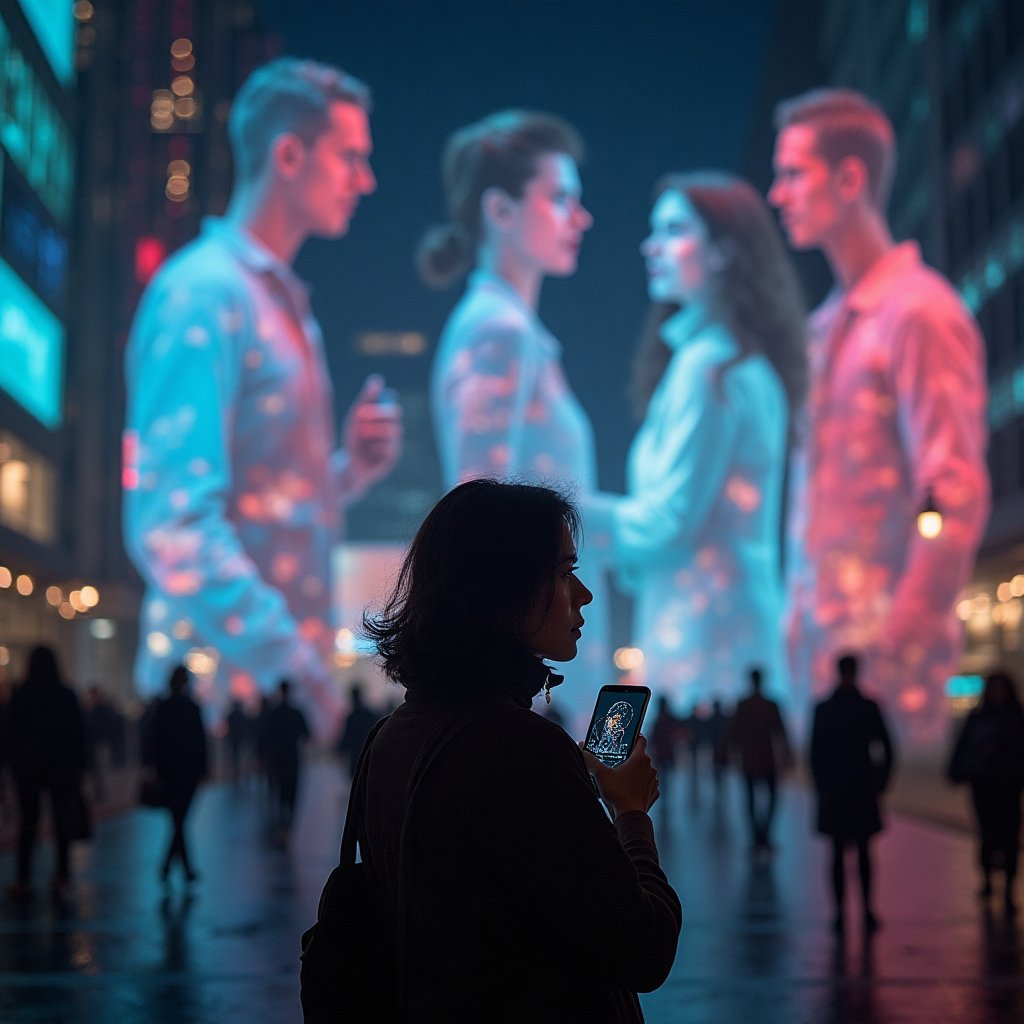

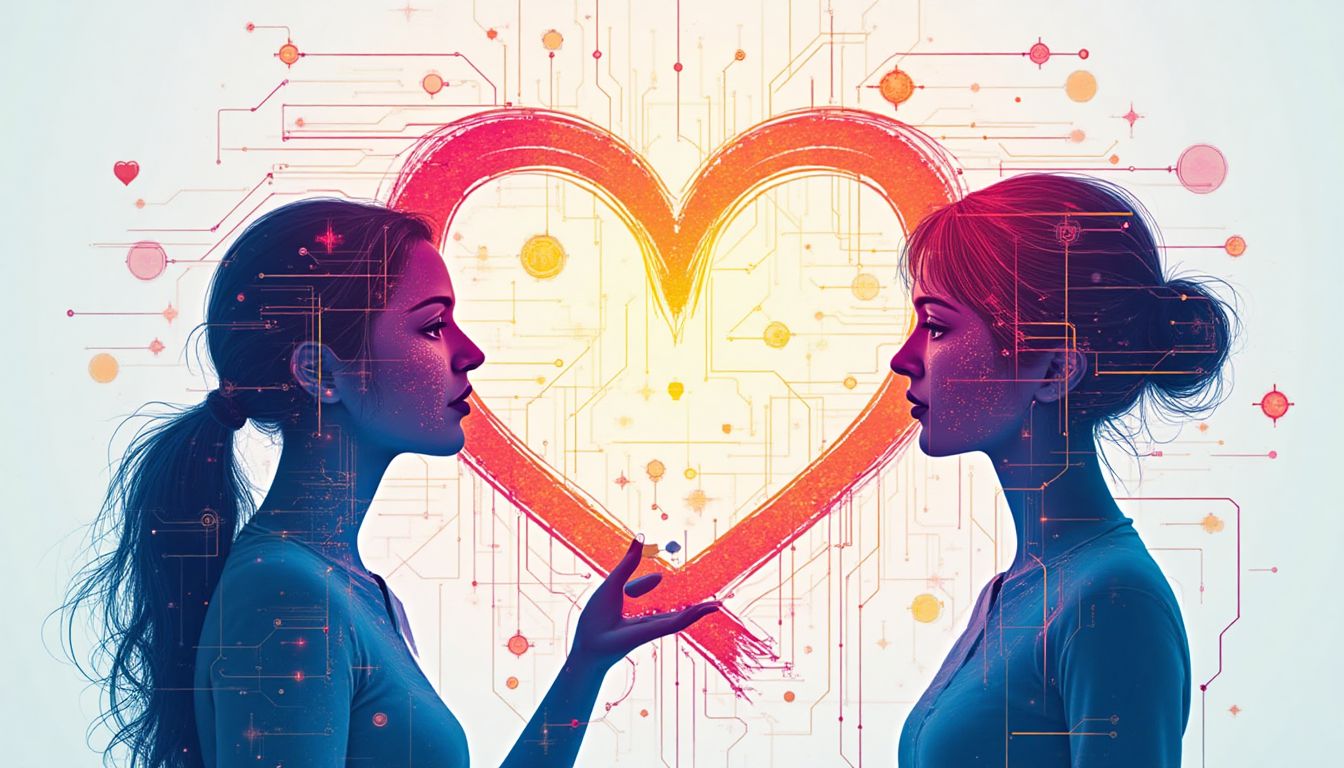
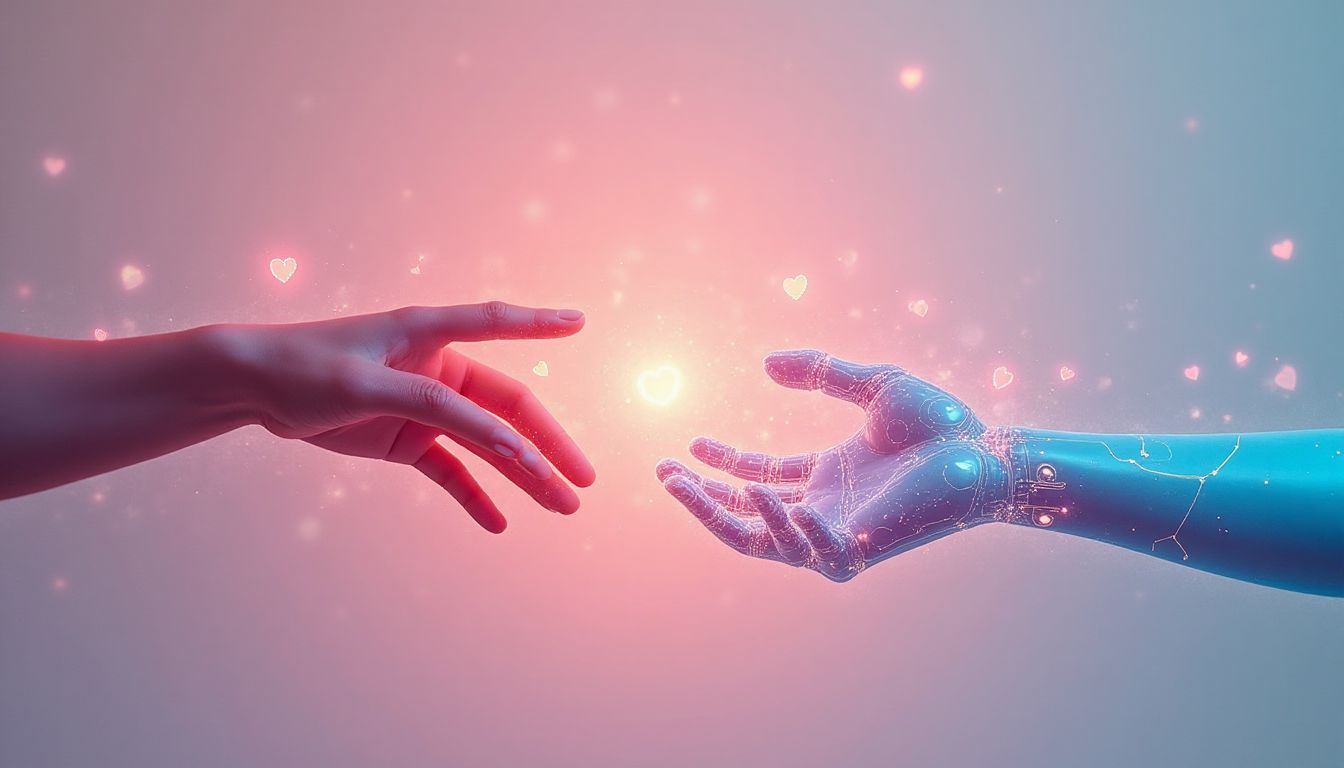
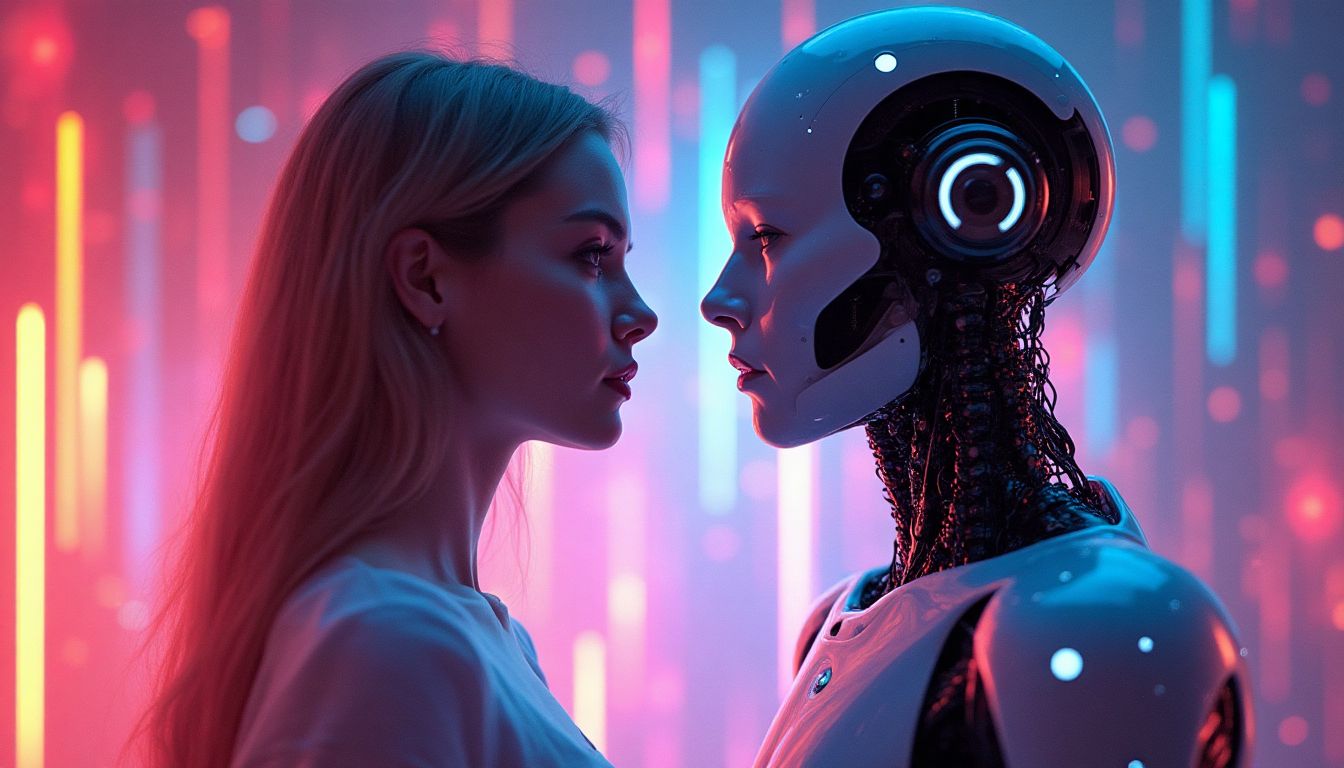







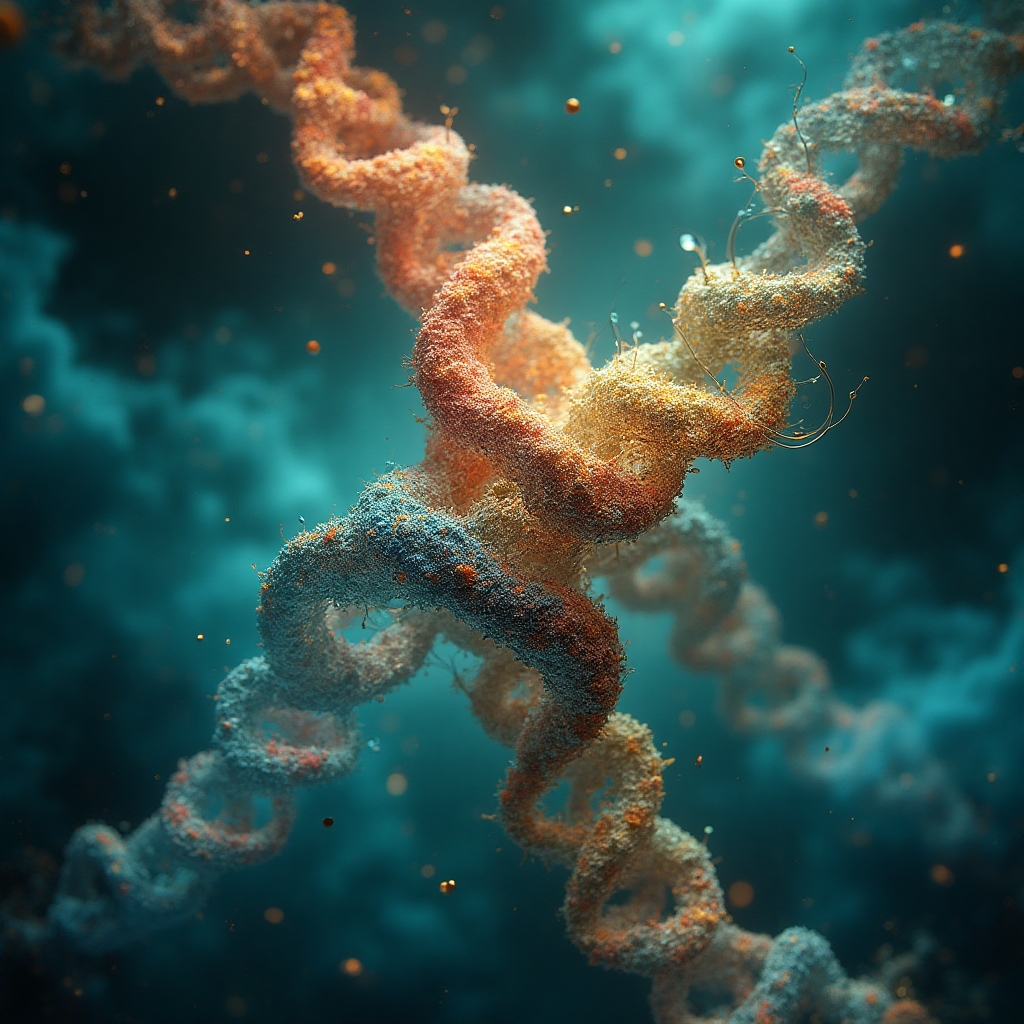
















Post Comment
You must be logged in to post a comment.